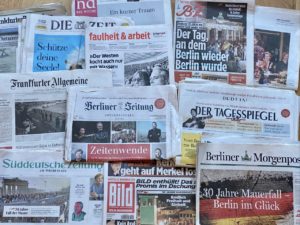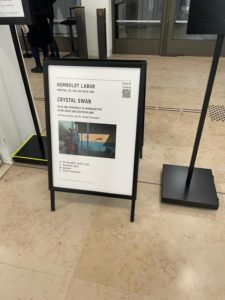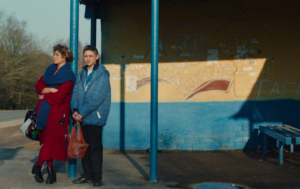
Article: “A ‘reunification’ of memories? An analysis of German media’s coverage of the 30th anniversary of the fall of the Berlin Wall.”
In their article “A ‘reunification’ of memories? An analysis of German media’s coverage of the 30th anniversary of the fall of the Berlin Wall,” authors Andrei Zavadski and Anna Litvinenko delve into German media narratives around the 30-year milestone since the fall of the Berlin


